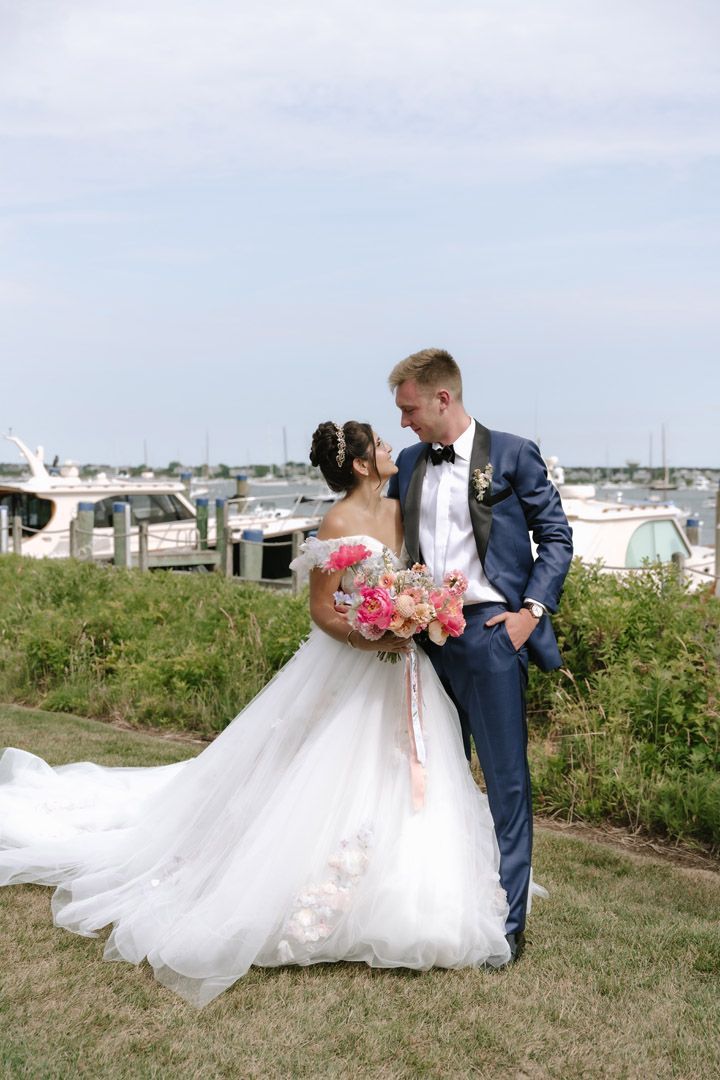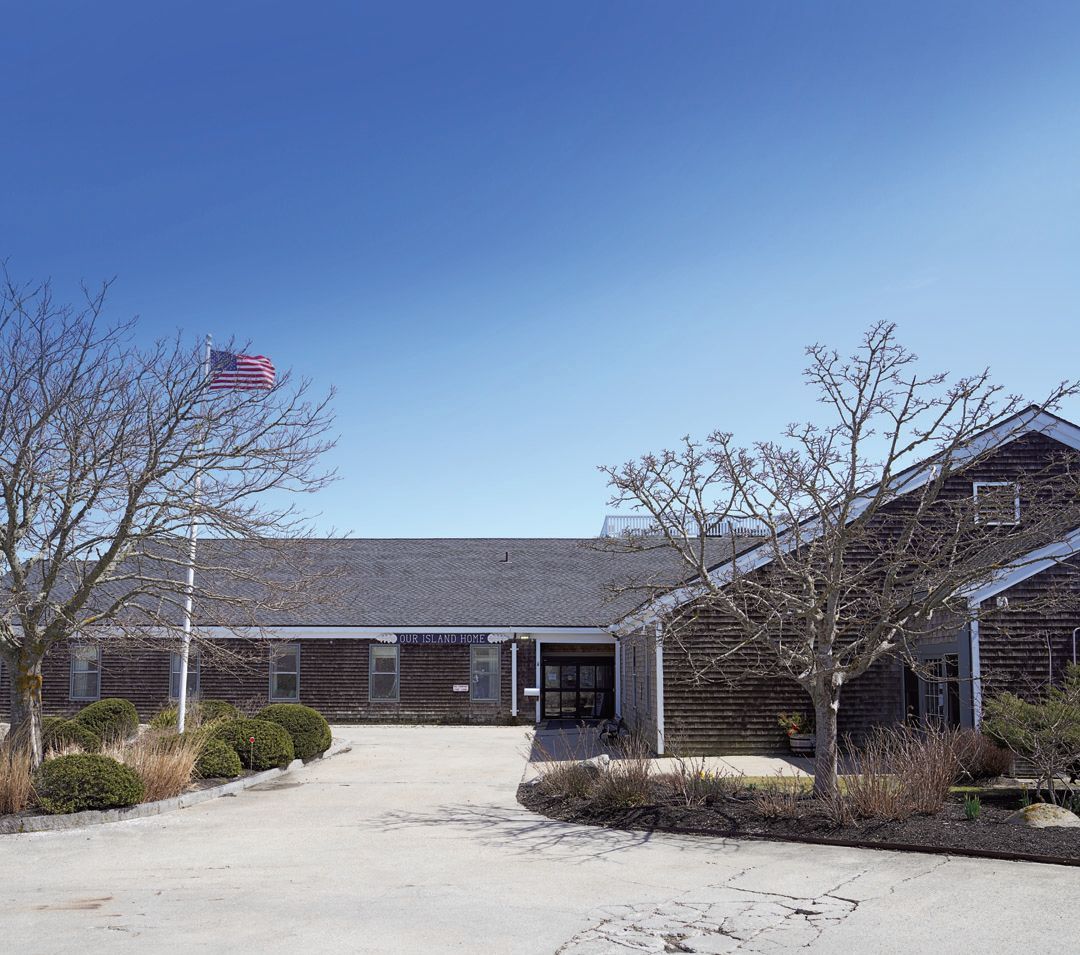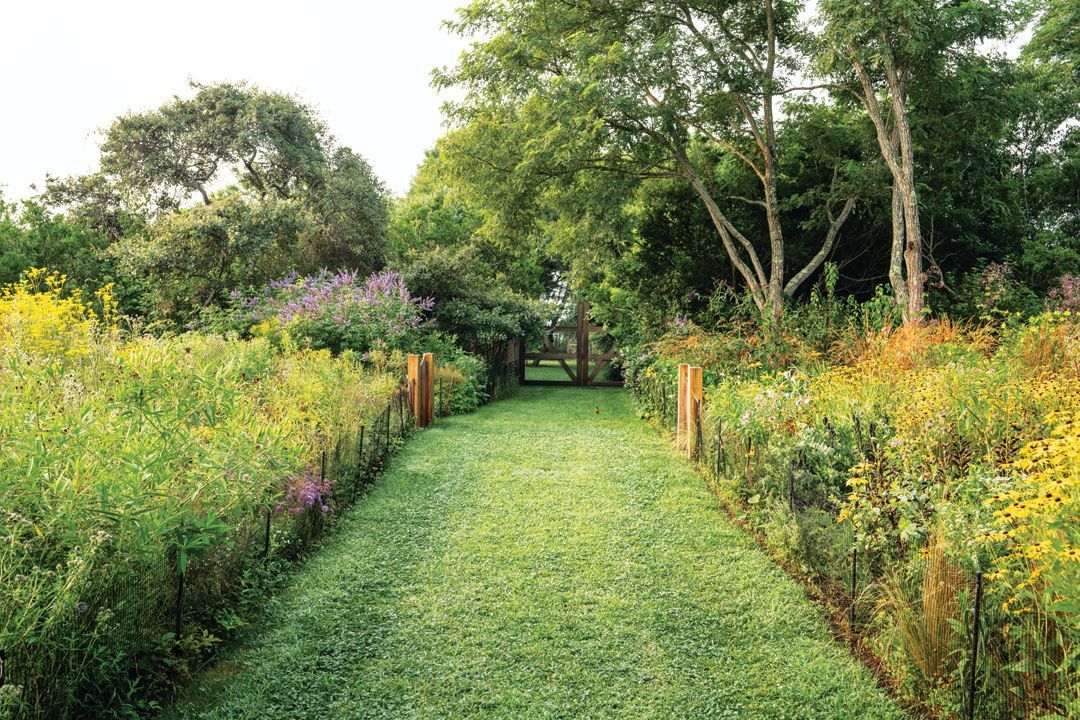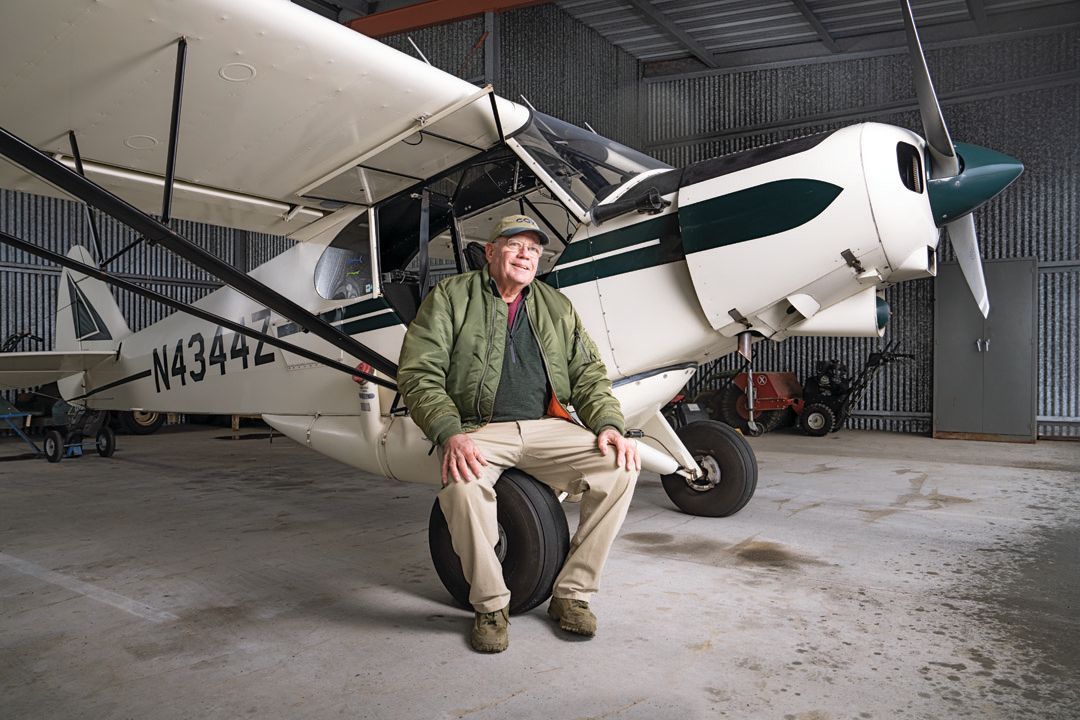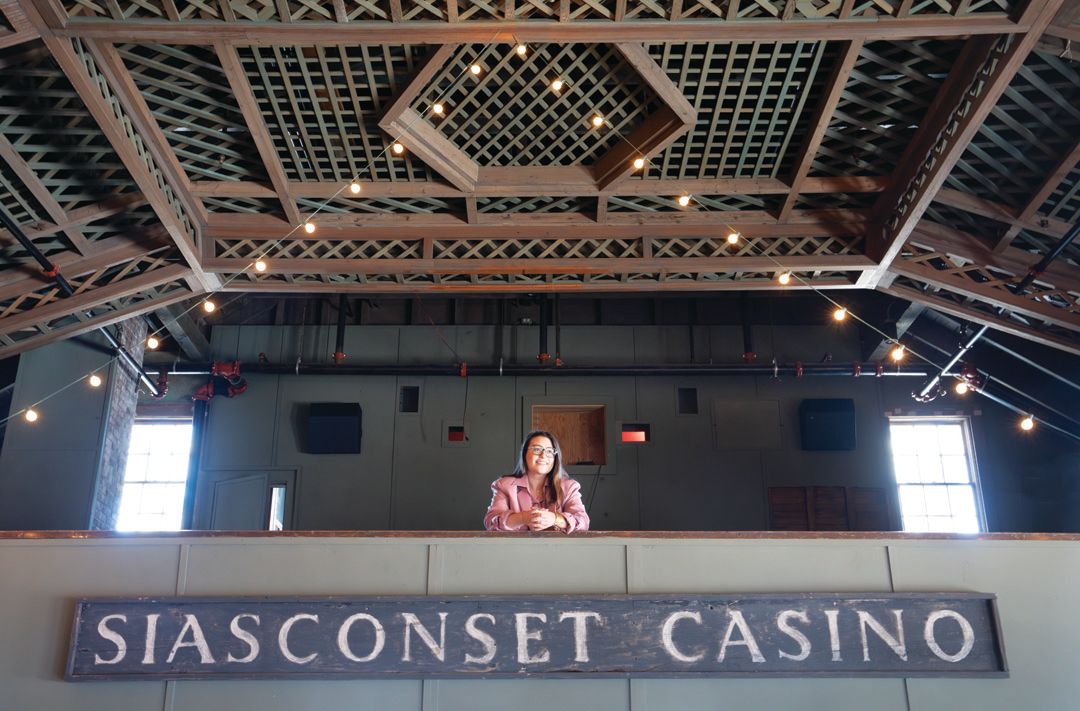Irish Tunes
On Wednesdays, a group of musicians plays Irish jigs at Kitty Murtagh’s, carrying on a tradition of Celtic sessions.
Written by Brian Bushard
Photography by Kit Noble
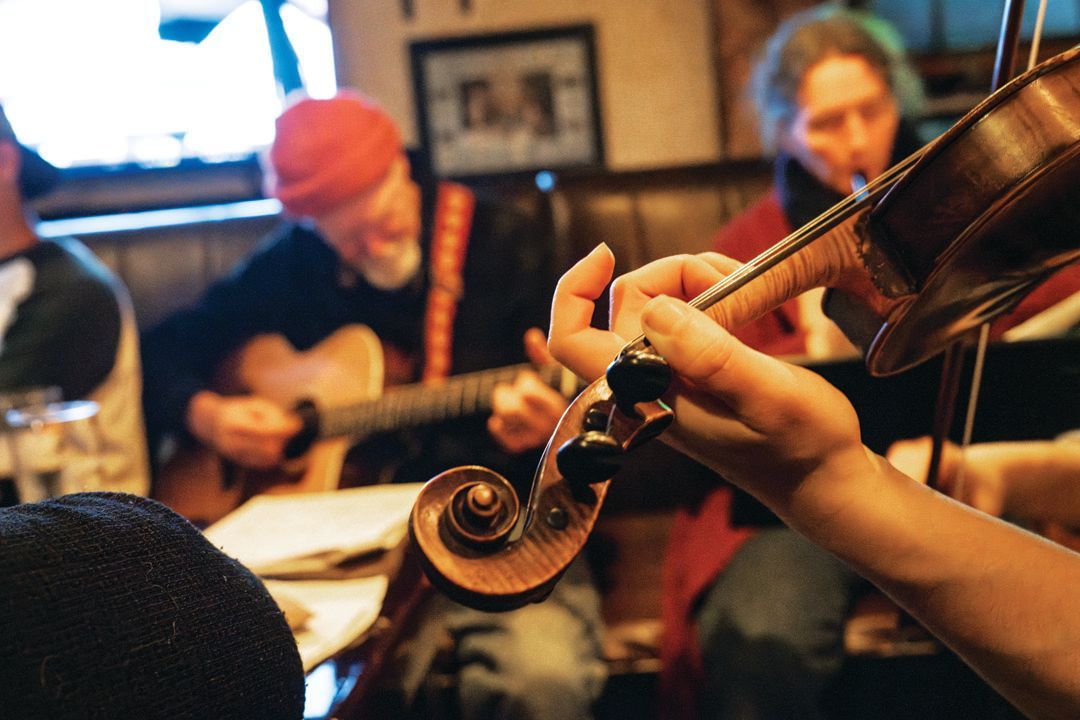
The part-time musicians who take a seat at Kitty Murtagh’s on Wednesday nights are not looking for the spotlight. For that matter, they’re not even looking for a paycheck from the bar. Instead, the group has found a place where it can meet regularly to play traditional Irish music, more as away to jam and build community around a common language of music than to show off their talents—though there’s no denying they are talented. For nearly eight years, they’ve met almost every week to perform together in some capacity. They have met at different venues, with members rotating from week to week. Even at Kitty Murtagh’s—where they’ve performed since 2023—some group members take breaks during the performance for a bite to eat. Some grab a Guinness.
“It’s one of the things we’re missing in our modern world, the connection of community,” said Meg Glidden, a teacher at the Nantucket Lighthouse School who has been playing in these Celtic sessions for five years. “I missed one week, and when I came back the next week, everybody clapped. Everybody can join, there’s nothing exclusive. Everyone can be there, that’s how music is.”
The Celtic Slow Sessions, as these impromptu gatherings are called, are organized by the Nantucket Community Music Center under de facto band leader Graeme Durovich. When the musicians are not playing a Wednesday session at Kitty Murtagh’s, they can be found at the Music Center on Centre Street.
Irish music has a rich history on Nantucket. John Keane, the owner of Kitty Murtagh’s, Town and Queequeg’s, has hosted a number of Irish musicians,
including Cork County native Sean Cunningham and his rock band Sunday’s Well, which covers ’70sand ’80s rock and punk songs by bands like Thin Lizzy and The Pogues, and U2 cover band Joshua Tree, which went on to perform several gigs at The Chicken Box. “It wasn’t iddly-diddly Irish music,” Keane said.
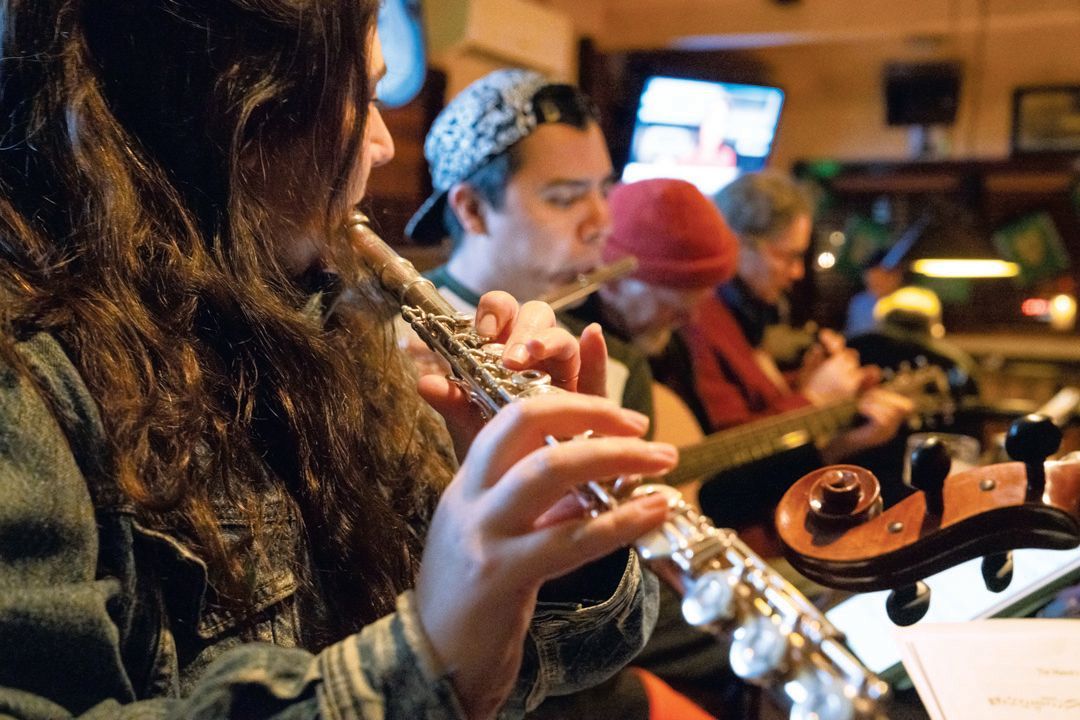
Traditional Irish music like the tunes played during the Celtic Slow Sessions has also had along presence on the island, whether by way of performances at the Whaling Museum by American troubadour Bill Schustik or jams organized by the late Henry Varian, an Irish immigrant to Nantucket via Boston known fondly to Keane as an “ambassador for music.”
“[The Celtic Slow Sessions] started out as a group of musicians getting together and jamming. They wanted a place where they could all get together,” Keane said of the Wednesday night performances at Kitty Murtagh’s. “It’s worked out well. People enjoy it. You might not be going thereto dance, but I feel as much as the house benefits from it, they benefit from it because it’s a venue and they get to have a good time.”
Peter Lochtefeld joined the group two years ago. At the time, he did not know much about Celtic music. But he was intrigued, and the songs sounded familiar. Lochtefeld’s father, artist John Lochtefeld, grew up in West Virginia playing what Peter referred to as “old folk songs that no one knows anymore.” When Peter joined the group at the Music Center, he said it was “like the wheel coming back around.” He’s since played sessions across the state. He’s attended sessions in Spain and in Amsterdam.
“You walk in and it’s really, really nice to have a group of people to play together because there’s a canon of songs that everyone knows,” he said. “I’m starting to finally get to know about half the stuff they play, which is great. People can come in and play and jump in and come and go. They don’t all go there for the beer, they go for the music and the camaraderie. This group is made up of all ages. It’s nice to have people come.”
Lochtefeld is one of several guitar players in the group. Others play the viola, fiddle, flute, oboe, mandolin, bass, banjo or an Irish string instrument resembling a long-necked mandolin called a bouzouki. Glidden, a trained flutist, pivoted to the penny whistle during the pandemic. She’s started memorizing a few pieces, “The Irish Washer woman” being a favorite. When she’s playing, it’s not to solo, but to play along to a melody. There are no solo instruments in the session. In other words, she said, there’s no place where one person is showing off.
“The group is very connected, very kind,” Glidden said. “When we play at Kittys, anyone can show up with an instrument and join in. There’s a real open sense of community with the group.”

